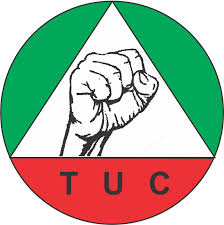The Trade Union Congress of Nigeria (TUC) has taken a swipe at the Senate over its position, expressed on Tuesday, on the case of the 12 soldiers who were recently convicted for mutiny and sentenced to death by a military tribunal.
The TUC noted that it is bad enough that the military tribunal issued such a sentence against ill-equipped gallant soldiers who battled the sect with unequalled bravery, but worse and totally bewildering that the Senate would not intervene because the penalty is as prescribed in the Military Act and must be carried out to maintain discipline.
The Chairman, Senate Committee on Defence, George Sekibo, had declared on Tuesday that the Senate would not intervene in military affairs it relates to the death sentence passed on 12 soldiers who were found guilty of Mutiny by a Military Court Martial recently.
A statement condemning the position of the Upper Chamber signed by TUC President Bobboi Kaigama and Musa Lawal, Secretary General respectively reads thus:
“We ordinarily might have agreed with the Senator if the soldiers’ mutinous acts and refusal to fight had been informed by cowardice, but the undisputed evidence adduced and reported show that they are all brave, willing combatants who only requested that they be sufficiently equipped for the task at hand and protested the avoidable death of their buddies because of the negligence, recalcitrance and misjudgement of their commanding officer. Surely these circumstances that prompted the soldiers’ alleged offences need to be considered and are weighty enough to serve as mitigating factors in the consideration of any punishment to be meted out to them. Any contrary view would amount to nothing but sheer wickedness and a clear example of man’s insensitivity and inhumanity to man.
“To the best of our knowledge the soldiers’ grievances stemmed from the fact that the military top brass failed to adequately equip them with the right quality and quantity of weapons, ammunitions and other equipment for the war against the Boko Haram insurgents that they were ordered to fight. Worse still, the insurgents were equipped with superior, up-to-date fire power and other tools of war, a factor which had helped them to vanquish many a soldier including several colleagues of the convicted ones.
“In the light of the foregoing, how could anyone have possibly expected the convicted soldiers to obey such an order? Does enlisting into any of the armed forces automatically translate to a reckless loss of one’s life and good sense of judgment? Or is it in the national interest for our soldiers to be needlessly suicidal? Is discretion no longer the better part of valour? Were they wrong to have insisted that their commanding officer (and the rest of the military leadership) furnish them with the pre-requisites for prosecuting the war? We dare say “no.”
“If we may ask further, why were the soldiers not well equipped at the time? What happened to the billions of naira annually budgeted for the procurement of military hardware and supplies? Who should be blamed for the inadequacies of the superior officers and the consequent reluctance of the lower-ranking soldiers to fight: the soldiers or the military high command? Or should the boys suffer for the sins of the “ogas” at the top?
“Rather than carry out that callous death sentence, the military should investigate, identify and proffer lasting solutions to the reasons why those 12 brave, patriotic soldiers who must have known the implications of mutiny went ahead to get involved in it. Additionally, the General Officer Commanding (GOC) who denied the boys the appropriate weapons while insisting that they obey his irresponsible and unreasonable orders should be court-marshalled. He it is that has demonstrated the most indiscipline.
“To all intents and purposes, the death sentence, if executed, would be no more than a special gift to the Boko Haram insurgents. It could also demoralise the rank and file of our brave soldiers. If the soldiers must be punished, a sentence of no more than 2 years imprisonment should suffice.
“Thus, we call on the Defence Headquarters to review the tribunal’s decision in favour of the convicted soldiers. And should they omit, neglect or fail to do this, our expectation is that President Jonathan would step in and exercise his prerogative of mercy by pardoning the convicted soldiers. No servant (or even slave), military or no military, should be punished for protesting or refusing to do a job for which his master denied him necessary tools”.


